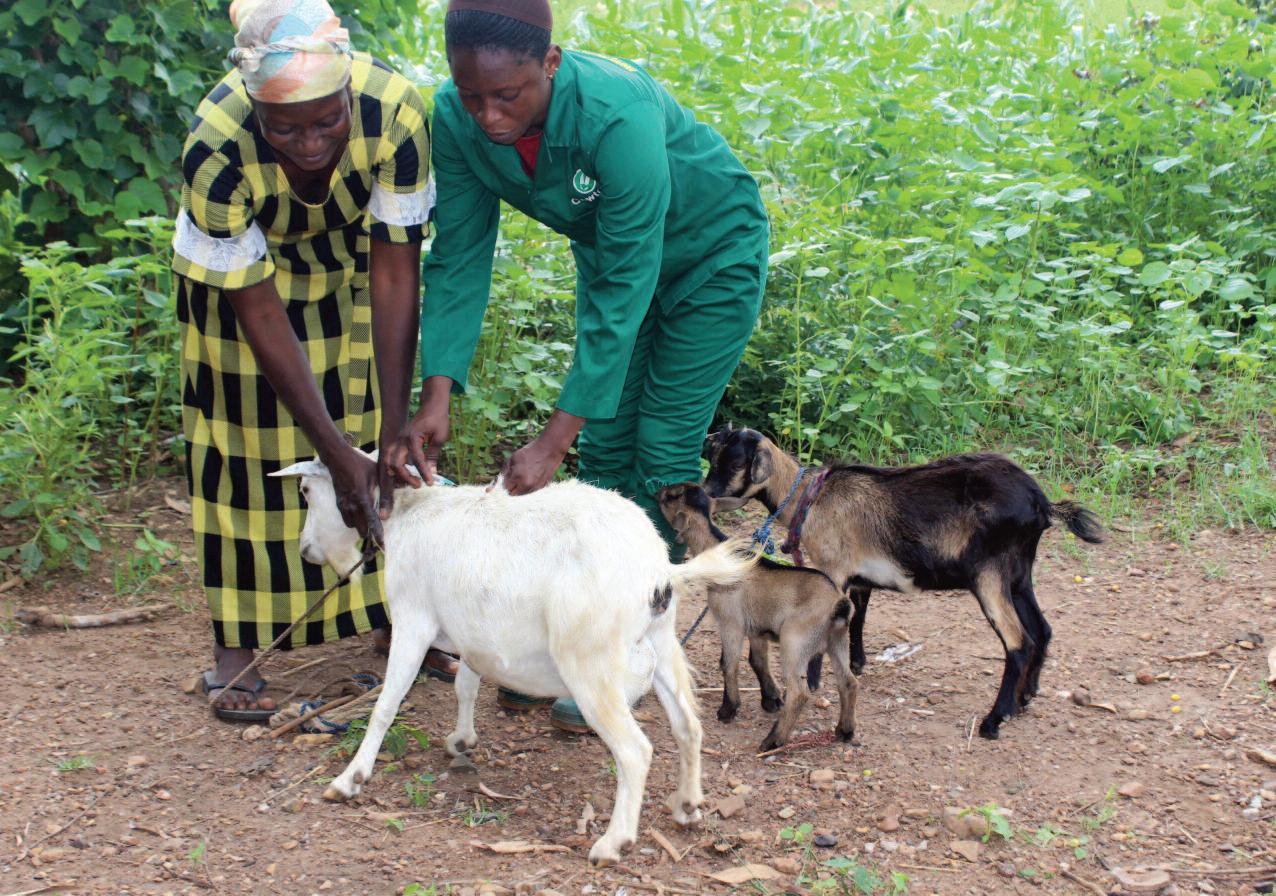
From lab to field
Innovations for health and food security


Infectious livestock diseases are responsible for more than 25% of losses in agricultural productivity in the Global South.

To combat these losses, we’ve supported innovations for the development of new vaccines to provide greater access for livestock farmers, mostly women. This can improve their economic security, and the health and food security of their communities.

We’ve designed a safer and less costly antigen delivery system that uses cellculture technology instead of expensive pathogen-free egg imports.

We’ve researched vaccines for foot-and-mouth disease with new mRNA technology, and swine fever virus with CRISPR-Cas technology.

We’ve expanded access to veterinarian services.
In Ethiopia, researchers experimented with a new business model that led to an 89% vaccination coverage of small ruminants for contagious caprine pleuropneumonia in four districts.

We’ve researched ways to lower the prohibitive costs of vaccination for marginalized communities. For example, researchers targeted two diseases with one vaccine, reducing the expenses for goat farmers.

We’ve expanded veterinarian services to women through mobile apps and drone delivery, and trained and equipped women community vaccinators and animal health service providers across 3 African rural districts which resulted in a 72% increase in access to animal health services.
